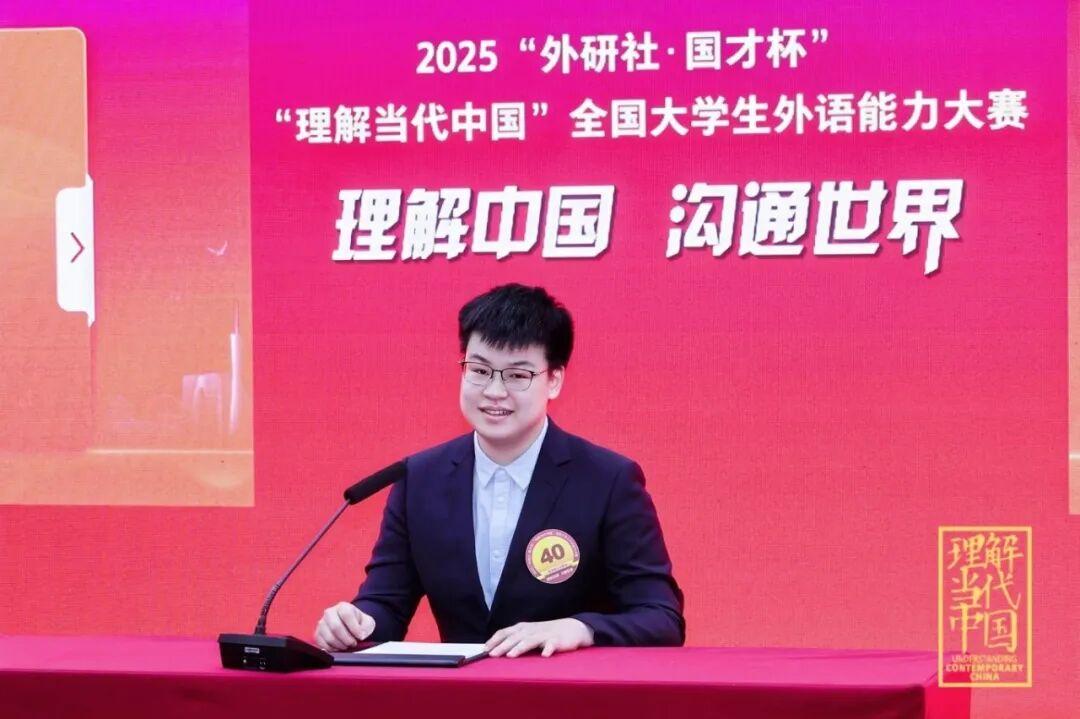Can plants be tailored? WKU Research Project Receive NSFC Funding Again
Plowing a field in spring, hoeing and weeding in summer, harvesting in autumn and storing up in winter—this is a typical farming year for all farmers. mo Thanks to the dern science and technology, this rotation could be reversed.
In fact, the world now is faced with a new round of food shortages with the growing population and land degradation.
Recently, Dr. Aloysius Wong, assistant professor in biology at Wenzhou-Kean University and his team conducted a research on “tailored plants”, this research may help solve this problem.
A sustainable approach of plant cultivation
In the recently published project list from the 2018 National Science Foundation of China, Dr. Wong’s project “Towards a highly tailored indoor horticulture: A functional genomics guided phenotypic approach” was included in the Research Fund for International Young Scientists, receiving funding of 396,000 RMB.
“Tailored plants” means the cultivation of indoor plants doesn’t depend on weather and is free from diseases. Furthermore, crop plants can be produced for food according to the demand so there is little to no wastage. Crop plants can be produced for food according to the demand so there is little or no wastage.
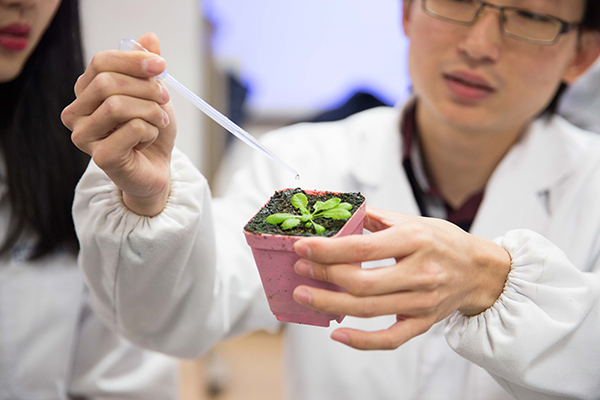
Are different plants favored by different lightning?
Lighting regime A can be applied to the cultivation of green leafy plants, lighting regime B for herbaceous plants, lightning regime C for ornamental plants and flowers, and lightning system D for fruits etc.
Dr. Aloysius Wong and his team will use complementary phenotypic and functional genomics to determine a set of light qualities and catalog a wealth of phenotype-specific molecular signatures that are tailored specially for indoor-grown plants. The research finding will be a reference point for effective optimizations of different plant types and for the cultivation of specific plant traits.
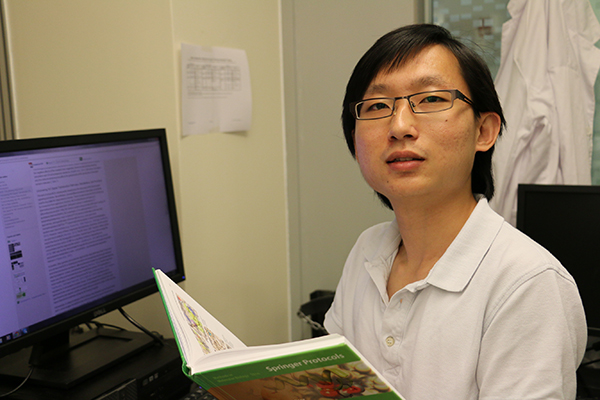 Dr. Aloysius Wong
Dr. Aloysius Wong
A post-85 Biology Professor
Born after 1985, Dr. Aloysius Wong, is a Chinese Malaysian. He got his master degree in University of Cambridge and PhD in King Abdullah University of Science & Technology Saudi Arabia. He was employed by Institute for Integrative Biology of the Cell (I2BC) of French National Centre for Scientific Research (CNRS) campus as postdoctoral researcher. He holds a patent of Laser-based agriculture system, and he received an award from the Dow Chemical Company.
Since joining WKU, Dr. Wong has taking a lead in conducting various scientific research. Previously, he guided WKU students Xu Nuo, Fu Dongfang, Li Shiang, Wang Yuxian to carry out the research of finding Guanylate Cyclase(GCs) , the paper was included in Bioinformatics, a leading international journal.
Besides Dr. Aloysius Wong, members of this project also included WKU biology specialist Tian Xuecheng, An Huiting, and scholars from King Abdullah University of Science & Technology, University of Perugia and CEA-Grenoble.
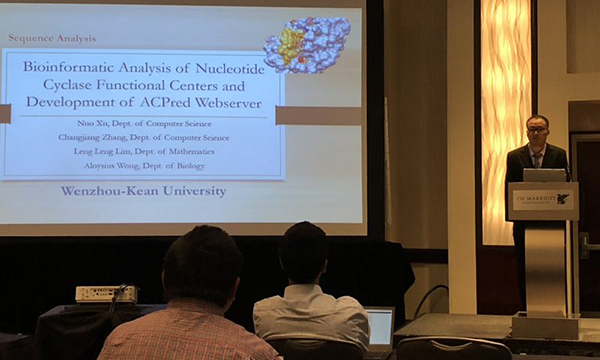 Xu Nuo report at 2018 ACM
Xu Nuo report at 2018 ACM
About National Science Foundation of China (NSFC)
The National Science Foundation of China (NSFC) is an important part of the national innovation system and mainly provides financial support to basic research and some applied research carried out by universities and/or institutions from all over the country, with priority being given to researchers that possess ideal research facilities and strong research capabilities. The number projects funded by NSFC is an important index to evaluate a university’s research capacity and academic standard.
Last year, Dr. Meng Yu’s project “Mechanism of a novel and efficient in-trans drug carrier K16ApoE across the blood-brain barrier” was funded 190,0000 RMB by NSFC. NSFC mainly provide financial assistance for to basic research and some applied research carried out by universities and/or institutions from all over the country, with priority being given to researchers that possess ideal research facilities and strong research capabilities.
- Wenzhou-Kean University Spearheading Sustainability in Higher Education in Asia and in China, Awarded the AASHE STARS Gold-Certified in Sustainability
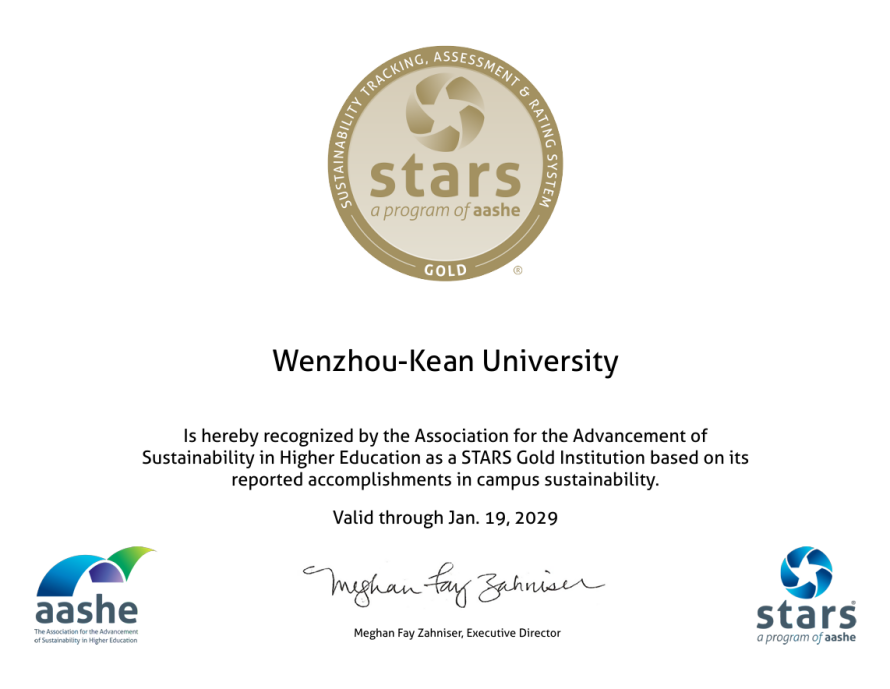
- Media Report | Wenzhou Daily: A Window into Friendship Between Chinese and U.S. Youths Wenzhou-Kean University Welcomes 340 Young Americans in Two Years
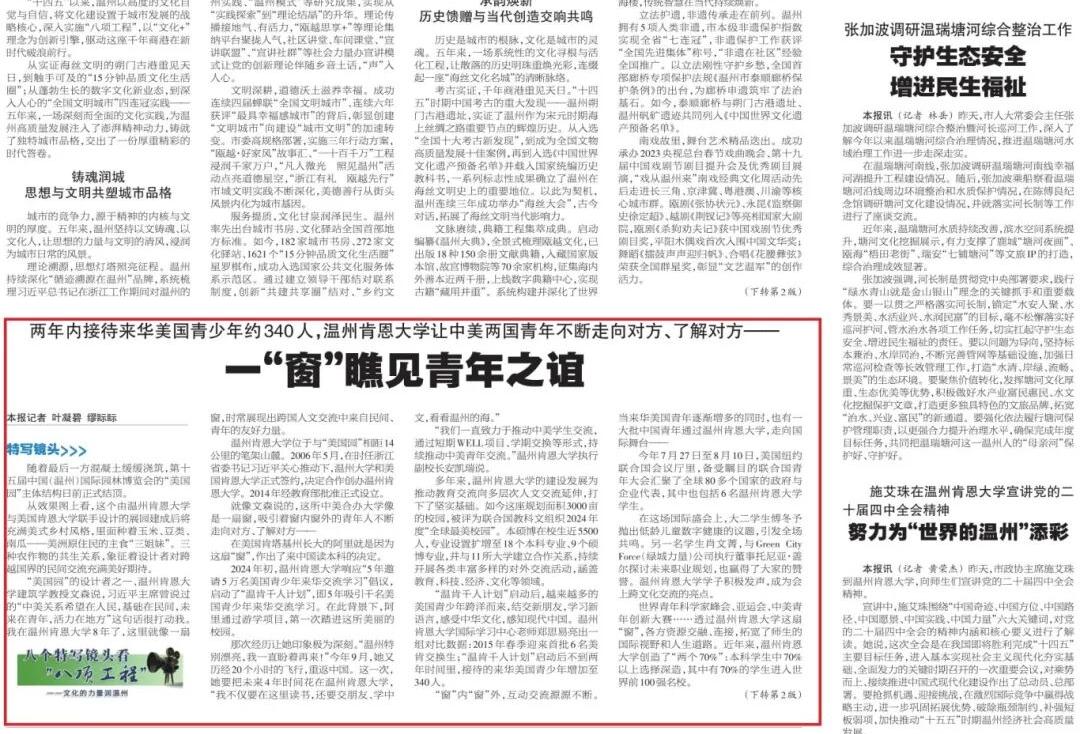
- WKU Student wins first prize in a national English speech contest: What is his answer to the value of boredom?
